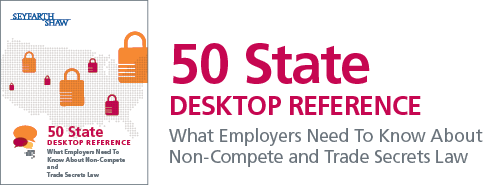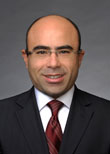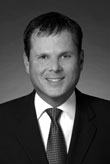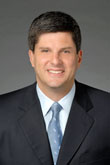Attorney Publication
Oct 3, 2016
Trade Secrets: Protecting Your Assets
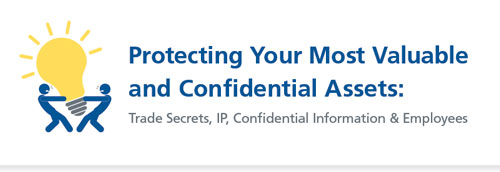 |
||||||||||||||||||
Significant developments in Illinois and Congress have changed the landscape of trade secret and restrictive covenant enforcement. For example:
Read on to access Seyfarth’s resources, including our recently released guides; registration for our November 3rd Breakfast Briefing; and FAQs on Illinois Restrictive Covenant Law.
|
||||||||||||||||||
|

